
Public Interest AI
Das Forschungsprojekt Public Interest AI widmet sich der Frage, wie Künstliche Intelligenz (KI) so gestaltet werden kann, dass sie dem Gemeinwohl dient. Gemeinwohlorientierte KI bedeutet, dass die Entwicklung und der Einsatz von KI-Systemen nicht primär auf Profitmaximierung oder private Interessen ausgerichtet sind, sondern auf den Nutzen für die gesamte Gesellschaft. Dazu gehören Initiativen, die Nachhaltigkeit fördern, soziale Inklusion stärken und offene Systeme schaffen, die eine Nachnutzung der Technologien ermöglichen.
Obwohl die Nutzung von KI für das Gemeinwohl in politischen Strategien, internationalen Richtlinien und staatlichen Fördermaßnahmen als zentrales Ziel hervorgehoben wird, bleibt unklar, wie diese Ausrichtung konkret umgesetzt und überprüft werden kann. Hier setzt die Forschung von Public Interest AI an: Das Projekt erforscht die Prinzipien und Kriterien, die solche Systeme auszeichnen und bringt diese in zahlreichen Netzwerken ein.
Das Ziel ist es, ein theoretisch fundiertes und gleichzeitig praktisch anwendbares Konzept zu schaffen, das als Orientierung für gemeinwohlorientierte KI dient. Dieses Konzept kann nicht nur als wichtiger Diskursbeitrag zur KI-Entwicklung in Europa fungieren, sondern auch als praktische Hilfe für Entwickler*innen bei der Umsetzung von KI-Systemen.
Gemeinwohlorientierte KI-Initiativen auf der ganzen Welt
Das Projekt hat sich global mit einem Überblick gemeinwohlorientierter KI-Projekten auseinandergesetzt, um zu verstehen, wie unterschiedlich diese je nach nationalen und sektoralen Kontext aussehen. Da bisher nur wenige Daten über solche Projekte verfügbar sind, wurde ein umfassendes Datenset über Public Interest AI erstellt, das Einblicke in die Ausrichtung und das Selbstverständnis zahlreicher Initiativen bietet.
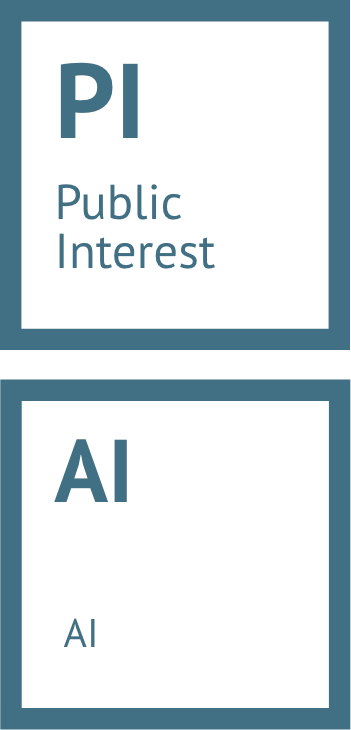 | Die Definition von gemeinwohlorientierter KI ist ebenso schwierig wie entscheidend für unsere Gesellschaft. Die Wissenschaft und verschiedene gesellschaftliche Interessengruppen sind in einen Diskurs eingetreten, um die Grenzen dieser Erklärung zu schärfen. Das Public Interest AI Interface erläutert, welche Prinzipien die Forschungsgruppe erarbeitet hat und stellt diese zur Diskussion. |
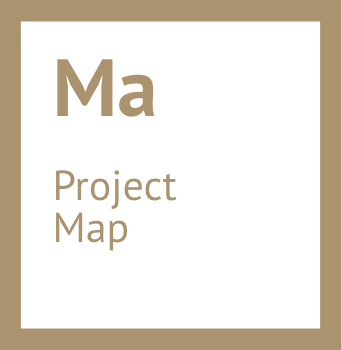 | Zusätzlich bietet eine interaktive Weltkarte eine Übersicht über verschiedene gemeinwohlorientierte KI-Initiativen. Sie enthält detaillierte Beschreibungen ihrer Zielsetzungen, Methoden und Rahmenbedingungen. |
Promotionsprojekte und Prototypen
Die aus der Forschung gewonnenen Erkenntnisse wurden auch in drei Promotionsprojekten umgesetzt. Die Ergebnisse umfassen nicht nur konzeptionelle und theoretische Arbeiten, sondern auch die Entwicklung mehrerer technischer Prototypen, die die entwickelten Kriterien für gemeinwohlorientierte KI in Anwendung bringen.
 | Dieses Promotionsprojekt beschäftigt sich mit der automatisierten Vereinfachung von deutschsprachigen Online-Texten. Ziel ist es, den Exklusionsfaktor zu minimieren, beispielsweise für Menschen mit Lernschwierigkeiten oder jene, die Deutsch als Fremdsprache lernen. Damit soll die Barrierefreiheit im Internet erhöht werden. Im Rahmen des Projekts wird an individuellen Teilkomponenten gearbeitet. Diese tragen zur Vollautomatisierung der Textvereinfachung bei. Daraus entstanden die KI-unterstützten Anwendungen von Simba. Sie bieten eine Internet-App zur Vereinfachung eigener Texte. Zusätzlich gibt es eine Browser-Erweiterung, die automatisch Texte auf Webseiten zusammenfasst. |
 | Dieses Promotionsprojekt untersucht die Rolle von Faktenchecks im öffentlichen Diskurs. Es geht darum, wie diese durch computergestützte Methoden verbessert werden können. Ein theoretischer Rahmen wird entwickelt, um Behauptungen zu identifizieren, die potenziell Desinformation enthalten. Zusätzlich wird ein Machine Learning Modell erstellt, das solche Behauptungen automatisch klassifiziert. Darüber hinaus wird die Rezeption und Wirkung von Faktenchecks empirisch untersucht, um die Wirksamkeit der Faktenprüfung zu optimieren. Basierend auf den Ergebnissen und im Austausch mit verschiedenen Redaktionen entsteht eine KI-Anwendung für Faktenchecker*innen im deutschsprachigen (und internationalen Raum), dass die Such nach potentieller Desinformation automatisiert und somit den Arbeitsprozess der Faktenchecker*innen erleichtert. |
 | Dieses Promotionsprojekt erforscht Modelle partizipativer Governance in datengetriebenen Projekte, die die Grundlage für KI Entwicklung bilden. Es nutzt das Konzept der Design Patterns, ursprünglich aus der Architektur, die Lösungsschablonen für wiederkehrende Herausforderungen bieten. Hier werden solche Patterns für die partizipative Governance von KI-Systemen erstellt. Ziel ist es, einen Katalog mit nutzbaren Patterns zu entwickeln, die Daten-Projekten als praktischer Leitfaden dienen, um beispielsweise den Zugang zu Daten oder ihre Nutzung partizipativ zu organisieren. |
Finanzierung
| Laufzeit | Oktober 2020 – September 2024 |
| Finanzierung | Bundesministerium für Bildung und Forschung | FKZ 01IS20058 |
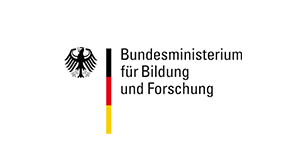

Die Webseite stellt die Prinzipien gemeinwohlorientierter KI vor und ermöglicht das Erkunden erster technischer Prototypen, die diese Kriterien umsetzen. Eine interaktive Weltkarte bietet zudem Einblicke in verschiedene KI-Initiativen weltweit, einschließlich deren Ziele, Methoden und Rahmenbedingungen.
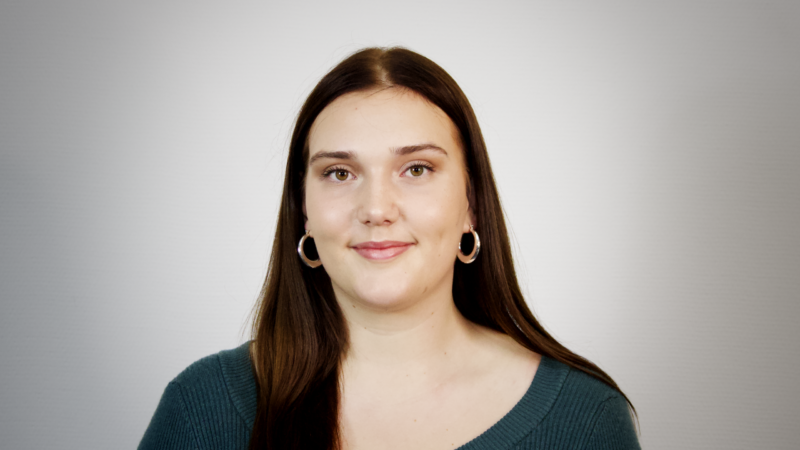 Birte LübbertStudentische Mitarbeiterin: AI & Society Lab
Birte LübbertStudentische Mitarbeiterin: AI & Society Lab Daniel PothmannProjektmitarbeiter: Wissenstransfer | Public Interest AI
Daniel PothmannProjektmitarbeiter: Wissenstransfer | Public Interest AI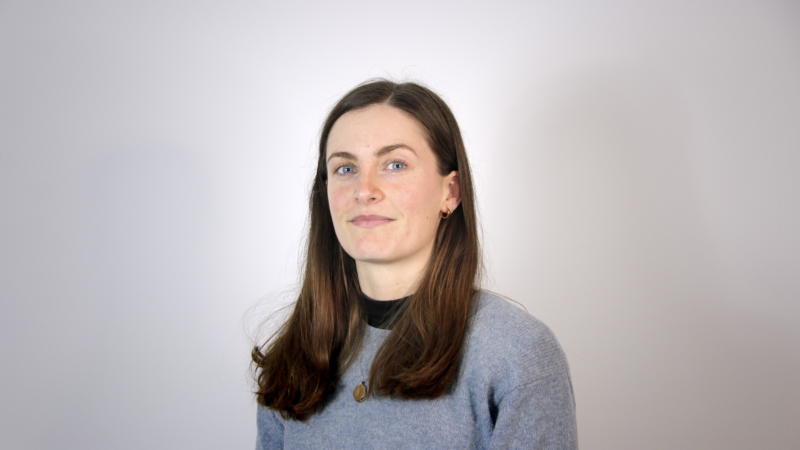 Freya HewettAssoziierte Forscherin: AI & Society Lab
Freya HewettAssoziierte Forscherin: AI & Society Lab Hadi Asghari, Dr.Assoziierter Forscher: AI & Society Lab
Hadi Asghari, Dr.Assoziierter Forscher: AI & Society Lab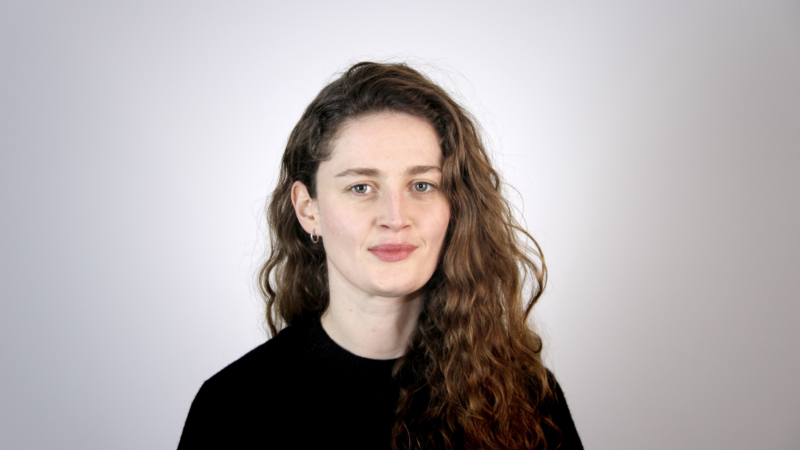 Judith FaßbenderAssoziierte Forscherin: AI & Society Lab
Judith FaßbenderAssoziierte Forscherin: AI & Society Lab Sami NennoAssoziierter Forscher: AI & Society Lab
Sami NennoAssoziierter Forscher: AI & Society Lab Theresa Züger, Dr.Leiterin AI & Society Labs und Projektleitung von Impact AI
Theresa Züger, Dr.Leiterin AI & Society Labs und Projektleitung von Impact AI
-
 Christopher RichterEhem. studentischer Mitarbeiter: AI & Society Lab
Christopher RichterEhem. studentischer Mitarbeiter: AI & Society Lab -
 Ferdinand Bálint DorendorfEhem. Studentischer Mitarbeiter: AI & Society Lab
Ferdinand Bálint DorendorfEhem. Studentischer Mitarbeiter: AI & Society Lab -
 Irina KühnleinEhem. Studentische Mitarbeiterin: AI & Society Lab
Irina KühnleinEhem. Studentische Mitarbeiterin: AI & Society Lab -
 Jakob Stolberg-LarsenEhem. Wissenschaftlicher Mitarbeiter: AI & Society Lab
Jakob Stolberg-LarsenEhem. Wissenschaftlicher Mitarbeiter: AI & Society Lab -
 Johanna Teresa WallenbornEhem. assoziierte Forscherin: Public Interest AI
Johanna Teresa WallenbornEhem. assoziierte Forscherin: Public Interest AI
Zeitschriftenartikel und Konferenzbeiträge
Nenno, S. (2024). Is checkworthiness generalizable? Evaluating task and domain generalization of datasets for claim detection. Neural Computing & Applications, 36, 15165–15176. DOI: 10.1007/s00521-024-09896-4 Weitere Informationen
Nenno, S. (2024). Potentials and Limitations of Active Learning for the Reduction of Energy Consumption during Model Training. Weizenbaum Journal of the Digital Society, 4(1). DOI: 10.34669/WI.WJDS/4.1.3 Weitere Informationen
Nenno, S. (2024). Propositional claim detection: A task and dataset for the classification of claims to truth. Journal of Computational Social Science. DOI: 10.1007/s42001-024-00289-0 Weitere Informationen
Nenno, S. (2024). Bootstrapping public entities. Domain-specific NER for public speakers. Communication Methods and Measures. DOI: 10.1080/19312458.2024.2388098 Weitere Informationen
Hewett, F., Asghari, H., Stede, M. (2024). Elaborative Simplification for German-Language Texts. Proceedings of the 25th Annual Meeting of the Special Interest Group on Discourse and Dialogue, 29-39. Weitere Informationen
Fassbender, J., & Henderson, T. (2024). Participatory to what end? Mapping motivations for participatory approaches in data-driven projects. GoodIT '24: Proceedings of the 2024 International Conference on Information Technology for Social Good, 301–305. DOI: 10.1145/3677525.3678675 Weitere Informationen
Züger, T. & Asghari, H. (2024). Introduction to the special issue on AI systems for the public interest. Internet Policy Review, 13(3). DOI: 10.14763/ 2024.3.1802 Weitere Informationen
Asghari., H., Hewett, F., & Züger, T. (2023). On the Prevalence of Leichte Sprache on the German Web. ACM WebSci ’23 Conference Proceedings, 147-152. DOI: 10.1145/3578503.3583599 Weitere Informationen
Hewett, F. (2023). APA-RST: A Text Simplification Corpus with RST Annotations. Proceedings of the 4th Workshop on Computational Approaches to Discourse (CODI 2023), 173-179. Weitere Informationen
Züger, T., Kuper, F., Fassbender, J., Katzy-Reinshagen, A., Kühnlein, I. (2023). Handling the hype: Implications of AI hype for public interest tech projects. TATuP – Journal for Technology Assessment in Theory and Practice, 32(3), 34-40. DOI: https://doi.org/10.14512/tatup.32.3.34 Weitere Informationen
Asghari, H., Stolberg-Larsen, J., & Züger, T. (2022). Approximating Accessibility of Regions from Incomplete Volunteered Data. CHI EA '22: Extended Abstracts of the 2022 CHI Conference on Human Factors in Computing Systems, 1-6. DOI: 10.1145/3491101.3519706 Weitere Informationen
Züger, T., & Asghari, H. (2022). AI for the public. How public interest theory shifts the discourse on AI. AI & Society. DOI: 10.1007/s00146-022-01480-5 Weitere Informationen
Hewett, F. & Stede, M. (2022). Extractive Summarisation for German-language Data: A Text-level Approach with Discourse Features. Proceedings of the 29th International Conference on Computational Linguistics (COLING), 756-765. Weitere Informationen
Asghari, H. & Hewett, F. (2022). HIIG at GermEval 2022: Best of Both Worlds Ensemble for Automatic Text Complexity Assessment. Proceedings of the GermEval 2022 Workshop on Text Complexity Assessment of German Text, 15–20. Weitere Informationen
Asghari, H., van Biemen, Thomas, & Warnier, Martijn (2021). Amplifying Privacy: Scaling Up Transparency Research Through Delegated Access Requests. 5th Workshop on Technology and Consumer Protection (ConPro ’21). Weitere Informationen
Mahieu, R., Asghari, H., Parsons, C., van Hoboken, J., Crete-Nishihata, M., Hilts, A., & Anstis, S. (2021). Measuring the Brussels Effect through Access Requests: Has the European General Data Protection Regulation Influenced the Data Protection Rights of Canadian Citizens? Journal of Information Policy, 11, 301-349. DOI: 10.5325/jinfopoli.11.2021.0301 Weitere Informationen
Hewett, F., & Stede, M. (2021). Automatically evaluating the conceptual complexity of German texts. Proceedings of the 17th Conference on Natural Language Processing (KONVENS 2021), 228–234. Weitere Informationen
Herausgeberschaften
Züger, T. & Asghari, H. (Eds.). (2024). AI systems for the public interest [Special issue]. Internet Policy Review, 13(3). DOI: 10.14763/2024.3.1802 Weitere Informationen
Buchbeiträge und Kapitel
Asghari, H. & Züger, T. (2024). Es gibt keinen Algorithmus gegen Hass – Hate Speech Detection: Über die Chancen und Grenzen der Automatisierung im Kampf gegen Rassismus und Antisemitismus. In M. Adeoso, E. Berendsen, L. Fischer, & D. Schnabel (Eds.), Code & Vorurteil – Über künstliche Intelligenz, Rassismus und Antisemitismus, Edition Bildungsstätte Anne Frank 4 (pp. 49-60). Berlin, Germany: Verbrecher Verlag. Weitere Informationen
Züger, T. (2021). The world we think is the world we get. In T. Bazzichelli, Whistleblowing for Change. Exposing Systems of Power & Injustice. Berlin, Germany: transcript. Weitere Informationen
Arbeitspapiere
Züger, T., Faßbender, J., Kuper, F., Nenno, S., Katzy-Reinshagen, A., & Kühnlein, I. (2022). Civic Coding: Grundlagen und empirische Einblicke zur Unterstützung gemeinwohlorientierter KI. Civic Coding Initiative. Weitere Informationen
Andere Publikationen
Züger, T., Asghari, H. & Lübbert, B. (2025). Public Interest AI Projects 2024, Dataset. Weitere Informationen
Nenno, S. (2024). Schädliche Informationen im Netz: Wann der Hype um Desinformation schadet. Tagesspiegel. Weitere Informationen
Züger, T. & Schönig, S. (2024). The (potential) impact of AI on the individual research process and science in general. Elephant in the Lab. Weitere Informationen
Nenno, S., Theodorakopulous, D., Lebedjew, I., Metz A. (2024). Wie nachhaltig sind KI-Systeme?, Podcast: Mission Energiewende. Weitere Informationen
Nenno, S. (2024). What’s the Content of Fact-checks and Misinformation in Germany? Elephant in the Lab. Weitere Informationen
Kühnlein, I. & Lübbert, B. (2024). Ein kleiner Teil von vielen – KI für den Umweltschutz. Digital Society Blog. Weitere Informationen
Rohde, F. & Züger, T. (2024). Interview with Friederike Rohde: The environmental impact of AI as a public interest concern. Internet Policy Review, 13 (3). Weitere Informationen
Meyer, K. & Züger, T. (2024). Interview with Katharina Meyer: On the tension between public interest and profit maximisation in public interest tech. Internet Policy Review, 13 (3). Weitere Informationen
Nenno, S. (2023). Propositional Claim Detection, (NLP Datensatz). Data File Version 1.0.0, https://doi.org/10.7802/2538. Weitere Informationen
Züger, T., & Pothmann, D. (2023). The AI Transparency Cycle. Digital society blog. Weitere Informationen
Hewett, F. & Asghari, H. (2023). Lowering the barriers: Accessible language and “Leichte Sprache” on the German Web. Digital society blog. Weitere Informationen
Kühnlein, I. (2023). Public Interest Tech: A take on the actors’ perspectives on ecological sustainability. Digital society blog. Weitere Informationen
Nenno, S. (2023). Inside Hugging Face. Digital society blog. Weitere Informationen
Nenno, S. (2023). Wie können KI-Modelle energiesparender werden? Ein Überblick über aktuelle Trends. te.ma. Weitere Informationen
Lübbert, B., & Kühnlein, I. (2023). Partizipation mit Wirkung: Einblicke in die Prozesse von Common Voice. Digital Society Blog. Weitere Informationen
Fassbender, J. (2022). Why explainable AI needs such a thing as Society. Digital society blog. Weitere Informationen
Asghari, H., Birner, N., Burchardt, A., Dicks, D., Fassbender, J., Feldhus, N., Hewett, F., Hofmann, V., Kettemann, M. C., Schulz, W., Simon, J., Stolberg-Larsen, J., & Züger, T. (2022). What to explain when explaining is difficult. An interdisciplinary primer on XAI and meaningful information in automated decision-making. HIIG Impact Publication Series. Weitere Informationen
Nenno, S., & Richter, C. (2022). Sustainable AI – How environmentally friendly is AI really? Digital society blog. Weitere Informationen
Züger, T. (2022). A lion for sustainable AI: How to support a new standard for sustainability reporting? Digital society blog. Weitere Informationen
Züger, T., Katzy-Reinshagen, A., Fassbender, J., Kuper, F., & Kühnlein, I. (2022). Civic Coding. Empirische Erkenntnisse und Empfehlungen zur Unterstützung gemeinwohlorientierter KI. HIIG Impact Publication Series. Weitere Informationen
Nenno, S. (2021). Siri’s evil sister. When the Dutch public service steals your data. Digital society blog. Weitere Informationen
Hewett, F., & Stede, M. (2021). Lexica corpus, . Weitere Informationen
Hewett, F., & Nenno, S. (2021). How to identify bias in Natural Language Processing. Digital society blog. Weitere Informationen
Nenno, S. (2021). How to find the right survey tool:problems and proposals. Elephant in the Lab. Weitere Informationen
Vorträge
Public Interest AI in ActionNeurIPS: Conference on Neural Information Processing Systems (Session: Women in Machine Learning). Women in Machine Learning. Vancouver Convention Center, Vancouver, Canada: 10.12.2024 Weitere Informationen
Theresa Züger
Wie verändert generative Künstliche Intelligenz den Journalismus?Medienpolitische Tagung 2024: KI, Big Tech & Co. – Was wird aus dem Journalismus?. ver.di, DGB. ver.di-Haus, Berlin, Germany: 16.10.2024 Weitere Informationen
Theresa Züger
Public Interest AIDigitalia 2024 (Session: Artificial Intelligence and Public Interest – paths to equity and democracy). Online, Rio de Janeiro, Brazil: 27.09.2024
Theresa Züger
All the (fake) news that’s fit to share? News values in perceived misinformation across 24 countriesECREA 2024 Communication & social (dis)order: 10th European Communication Conference (Session: From sharing to discussing: Online media experiences). European Communication Research and Education Association (ECREA). University of Ljubljana, Ljubljana, Slovenia: 25.09.2024 Weitere Informationen
Sami Nenno, Cornelius Puschmann
KI in der politischen BildungStitching Democracy. Federal Agency for Civic Education (Bundeszentrale für politische Bildung/bpb). Bundeszentrale für politische Bildung, Berlin, Germany: 25.09.2024 Weitere Informationen
Theresa Züger
Elaborative Simplification for German-Language TextsSIGDIAL 2024: 25th Meeting of the Special Interest Group on Discourse and Dialogue. Kyoto University. Kyoto University, Kyoto, Japan: 18.09.2024 Weitere Informationen
Freya Hewett
KI & GemeinwohlAlumnitreffen: Perspektivwechsel. Common Purpose. Berliner Institut für Medizinische Systembiologie des Max Delbrück Center (MDC-BIMSB), Berlin, Germany: 16.09.2024
Theresa Züger
AI for the public interestSummer School of Artificial Intelligence and Society 2024. Bifold. Technische Universität Berlin, Berlin, Germany: 11.09.2024 Weitere Informationen
Theresa Züger
Public Interest AIDiscussion Group: AI policy. Georgia Institute of Technology. Online, Georgia, USA: 10.09.2024
Theresa Züger
Mechanistic Interpretability of Socio-Political Frames in Language Models: an ExplorationAdvances in Interpretable Machine Learning and Artificial Intelligence (AIMLAI). INRIA. Radisson Blu Vilnius Hotel, Vilnius, Lithuania: 09.09.2024 Weitere Informationen
Hadi Asghari, Sami Nenno
Random Evidence. Study on the Types of Evidence used to debunk Misinformation and the Implications for Automated Fact-checkingMisdoom 2024: 6th Multidisciplinary International Symposium on Disinformation in Open Online Media. University of Münster. Münster Palace, Münster, Germany: 03.09.2024 Weitere Informationen
Sami Nenno
Interfaces gemeinwohlorientierter KIVortragsreihe “Der Interface-Komplex“. Brandenburg Center for Media Studies. ZeM – Brandenburgisches Zentrum für Medienwissenschaften, Potsdam, Germany: 02.07.2024 Weitere Informationen
Theresa Züger
KI gegen die Klimakrise. Was ist dran?CityLAB Sommerkonferenz 2024. CityLAB. Haus Ungarn, Berlin, Germany: 27.06.2024 Weitere Informationen
Theresa Züger
Gemeinwohlorientierte KI und GerechtigkeitVernetzungstreffen der Förderinitiative „KI-Leuchttürme für Umwelt, Klima, Natur und Ressourcen“. Federal Ministry for the Environment, Nature Conservation, Nuclear Safety and Consumer Protection (BMUV). Impact Hub, Berlin, Germany: 11.06.2024 Weitere Informationen
Theresa Züger
Wandel durch KI?Wikipedia-Zukunftskongress 2024. Wikimedia. Korn’s, Nürnberg, Germany: 08.06.2024 Weitere Informationen
Theresa Züger
Fact-checks as Data Source? Content Analysis of Fact-checking Articles in Germany between 2019 and 2023Ringvorlesung: "Politische Kommunikation". Friedrich-Schiller-Universität Jena. Institut für Kommunikationswissenschaft, Jena, Germany: 29.05.2024 Weitere Informationen
Sami Nenno
AI and the publicUrban Hosts: Conversations about urban life, digital society, and our civic environments. Urban Hosts. Bezirkszentralbibliothek Pablo Neruda, Berlin, Germany: 14.05.2024 Weitere Informationen
Theresa Züger
Künstliche Intelligenz - Ein „Gamechanger” in der Entwicklungszusammenarbeit?KAAD-Jahresakademie: Künstliche Intelligenz: Interkulturelle Reflexionen aus Wissenschaft und Kirche. Katholischer Akademischer Ausländerdienst. Haus Venusberg e.V., Bonn, Germany: 26.04.2024 Weitere Informationen
Theresa Züger
Public Interest AIMercator Forum: Digitale (Ohn-)Macht – Teilhabe und Zusammenhalt in der digitalisierten Gesellschaft. Stiftung Mercator. Stiftung Mercator, Essen, Germany: 24.04.2024 Weitere Informationen
Theresa Züger
Komplexitätsmerkmale auf der Textebene: Eine systematische KorpusanalyseTagung: Einfach oder komplex? Befunde zur Passung geschriebener Sprache für verschiedene Zielgruppen. Institut für Deutsch als Fremdsprachenphilologie. Universität Heidelberg, Heidelberg, Germany: 22.03.2024 Weitere Informationen
Freya Hewett
Implementation of Public Interest AIBARC Data Festival. BARC GmbH. Muffatwerk Munich, Munich, Germany: 19.03.2024 Weitere Informationen
Sami Nenno
Implementation of Public Interest AIDATA festival #Munich: Getting real with AI. BARC. Muffatwerk Munich, Munich, Germany: 19.03.2024 Weitere Informationen
Sami Nenno
What we mean by AI for public interestDATA festival #Munich: Getting real with AI. BARC. Muffatwerk Munich, Munich, Germany: 19.03.2024 Weitere Informationen
Theresa Züger
KI im GemeinwohlsektorFachvortrag: "KI im Gemeinwohlsektor". Evangelischer Diakonieverein Berlin-Zehlendorf e.V.. Gäste- und Tagungshaus am Glockengarten, Berlin, Germany: 20.02.2024
Theresa Züger
AI in the Public Interest - a global perspectiveDeutsch-Kenianischer Dialogtag. Federal Ministry for Digital and Transport (BMDV), Kenyan Ministry of Information, Communication and Digital Economy (MICDE). Online, Berlin, Germany: 13.02.2024 Weitere Informationen
Theresa Züger
Seminar: Digital CitizenshipDigital Citizenship. Vienna University of Economics and Business. Vienna University of Economics and Business, Vienna, Austria: 03.02.2024
Theresa Züger
The Who, How and Why of Participation in Databased Projects - A Systematic Literature ReviewBig Data Discourses: Communicating, Deliberating, and Imagining Datafication (Session: Reviewing Participatory Dimensions in Data-Centric Projects). Department for Communication and Media Studies. Leipzig University, Leipzig, Germany: 01.02.2024 Weitere Informationen
Judith Faßbender
How AI can serve Public InterestsOnline Festival: Perpetual Beta 2024. Goethe-Institut. Online, Munich, Germany: 01.02.2024
Theresa Züger
KI im Sinne des GemeinwohlsKünstliche Intelligenz verbessert Gesellschaft?!. Academy for Political Education Tutzing. Academy for Political Education Tutzing, Tutzingen, Germany: 19.01.2024 Weitere Informationen
Theresa Züger
Desinformation und KI. Wird jetzt alles noch schlimmer?Lecture: Desinformation und KI. Wird jetzt alles noch schlimmer?. Modus – Zentrum für angewandte Deradikalisierungsforschung gGmbH. Modus – Zentrum für angewandte Deradikalisierungsforschung, Berlin, Germany: 12.12.2023
Sami Nenno
AI und SustainabilityAI for Sustainability / Sustainable AI (Session: AI & Social Sustainability). Technische Universität München (TUM), Hochschule München. Online, Munich, Germany: 17.11.2023
Theresa Züger
KI im Sinne des Gemeinwohls#ZukunftWohlfahrt: Mit Daten & KI die Wohlfahrt von morgen gestalten. Deutsches Rotes Kreuz. Online, Dresden, Germany: 15.11.2023
Theresa Züger
The Opportunities of AI in Addressing Human Rights RisksUN GCD Annual Conference 2023 (Session: Menschenrechte & Arbeitsnormen). UN Global Compact Netzwerk Deutschland (UCD). Humboldt Carré, Berlin, Germany: 07.11.2023 Weitere Informationen
Hadi Asghari
AI-systems for the public interestAoIR2023 (Session: AI-systems for the public interest). Temple University (TU), University of Pennsylvania (Penn). Sonesta Hotel, Philadelphia, USA: 18.10.2023 Weitere Informationen
Theresa Züger
AoIR2023 (Session: AI-systems for the public interest). Temple University (TU), University of Pennsylvania (Penn). Sonesta Hotel, Philadelphia, USA: 18.10.2023 Weitere InformationenFreya Hewett
Workshop: Shifting AI Controversies (Session: Shifting AI Controversies: Sind die KI-Kontroversen, die wir haben, die KI-Kontroversen, die wir brauchen?). Humboldt Institut for Internet and Society. Humboldt Institut for Internet and Society, Berlin, Germany: 05.10.2023 Weitere InformationenTheresa Züger
KI 2023 – 46th German Conference on Artificial Intelligence (Session: AI Systems for the Public Interest). Gesellschaft für Informatik (GI). Hochschule für Technik und Wirtschaft Berlin, Berlin, Germany: 26.09.2023 Weitere InformationenJudith Faßbender, Freya Hewett, Sami Nenno
KI im Sinne des GemeinwohlsFachtagung Münster. Diakonie Deutschland. Online, Münster, Germany: 21.09.2023
Theresa Züger
Propositional Claim DetectionInternational Conference for Computational Social Science IC2S2'23 Copenhagen. International Society for Computational Social Science (ISCSS). Mærsk Tower of the University of Copenhagen, Copenhagen, Denmark: 20.07.2023 Weitere Informationen
Sami Nenno
APA-RST: A Text Simplification Corpus with RST AnnotationsACL 23: The 61st Annual Meeting of the Association for Computational Linguistics. Association for Computational Linguistics. The Westin Harbour Castle, Toronto, Canada: 13.07.2023 Weitere Informationen
Freya Hewett
AI for the Public InterestBachelor's Course: "Künstliche Intelligenz als Herausforderung der Demokratie". University of Erfurt. University of Erfurt, Erfurt, Germany: 28.06.2023
Hadi Asghari
On the Prevalence of Leichte Sprache on the German Web15th ACM Web Science Conference 2023. Association of Computing Machinery. 15th ACM Web Science Conference 2023, Evanston, USA: 30.04.2023
Hadi Asghari
Eine Bestandsaufnahme des CO2-Fußabdrucks von AI: Was wissen wir und wie können wir ihn verringern?KI Camp 2023. Gesellschaft für Informatik. Factory Berlin Görlitzer Park, Berlin, Germany: 26.04.2023 Weitere Informationen
Sami Nenno, Hadi Asghari
AI for Sustainability & Sustainable AICIFE Master programmes in Global Economic Governance & Public Affairs (GEGPA) and EU Trade & Climate Diplomacy (EUDIPLO). Centre International de Formation Européenne (CIFE). Centre International de Formation Européenne (CIFE), Berlin, Germany: 17.03.2023
Asghari, H., Nenno, S.
Public Interest AIFeministische Digitalpolitik (Session: Public Interest AI). Superrr Lab. Superrr Lab, Berlin, Germany: 20.02.2023
Theresa Züger
Demystifying AI: Typologies to map AI-systems and datasetsLehrauftrag. KISD - Köln International School of Design. KISD - Köln International School of Design, Cologne, Germany: 18.11.2022
Judith Fassbender
Public Interest AIUNESCO Fachausschuss Kommunikation und Information. German Comission for UNESCO. UNESCO Fachausschuss Kommunikation und Information, Brussels, Belgium: 15.11.2022 Weitere Informationen
Theresa Züger
Was bedeutet Transparenz für KI-Systeme?ZVKI Fachforum. iRights.Lab. Online, Berlin, Germany: 10.11.2022 Weitere Informationen
Theresa Züger
Digital tools for text simplificationSeminar “Sprache als Schwelle zur Kunst? Kunstvermittlung und Konzepte einfacher und leichter Sprache”. Kunsthalle Osnabrück. Online, Osnabrück, Germany: 09.11.2022
Freya Hewett
Civic Coding – KI für das Gemeinwohl nutzenCivic Coding – KI für das Gemeinwohl nutzen. Bundesministerium für Arbeit und Soziales. Impact HUB Berlin, Berlin, Germany: 18.10.2022 Weitere Informationen
Theresa Züger, Judith Fassbender, Freia Kuper
Design Patterns – Prozessformate für eine verantwortungsvolle Umsetzung von KI-SystemenKI-Lab. The Policy Lab Digital, Work & Society of the Federal Ministry of Labour and Social Affairs. KI-Lab of the Policy Lab Digital, Work & Society of the Federal Ministry of Labour and Social Affairs, Berlin, Germany: 30.09.2022
Judith Fassbender
Poster Pitch: Are AI standardisation processes inclusive enough to deliver tech that works for everyone?European Think Tank Conference 2022. German Council on Foreign Relations (DGAP). European Think Tank Conference 2022, Berlin, Germany: 20.09.2022 Weitere Informationen
Hadi Asghari
Approximating Accessibility of Regions from Incomplete Volunteered DataCHI EA '22. Association of Computing Machinery. Online, New Orleans, USA: 03.05.2022 Weitere Informationen
Hadi Asghari
Seminar: Programmatische Autonomie: Künstliche Intelligenz und selbstfahrende Autos (Session: Lecture: Künstliche Intelligenz?). University of Potsdam: Prof. Dr. Jan Distelmeyer. Potsdam University, Potsdam, Germany: 03.05.2022Theresa Züger
PhD Workshop on Artificial Intelligence and Machine Learning research and DemocracyPhD Workshop on Artificial Intelligence and Machine Learning research and Democracy. University of Tübingen. University of Tübingen, Tübingen, Germany: 02.04.2022 Weitere Informationen
Judith Fassbender
Particles of a whole: design patterns for transparent and auditable AI-systemsUbiComp '21: The 2021 ACM International Joint Conference on Pervasive and Ubiquitous Computing (Session: Particles of a whole: design patterns for transparent and auditable AI-systems). UbiComp. Online, New York, USA: 25.09.2021 Weitere Informationen
Judith Faßbender
Automatically evaluating the conceptual complexity of German textsKONVENS 2021 (Session: Automatically evaluating the conceptual complexity of German texts). German Society for Computational Linguistics and Language Technology, the Special Interest Group on Computational Linguistics of the German Linguistic Society and the Austrian Society for Artificial Intelligence. Heinrich-Heine-Universität Düsseldorf, Düsseldorf, Germany: 09.09.2021 Weitere Informationen
Freya Hewett
AI with Volunteering CommunitiesThe 3rd Workshop on Artificial Intelligence for Social Good (Session: AI with Volunteering Communities). International Joint Conferences on Artificial Intelligence, Montreal, Canada: 21.08.2021 Weitere Informationen
Stolberg-Larsen, J.
Amplifying Privacy: Scaling Up Transparency Research Through Delegated Access Requests5th Workshop on Technology and Consumer Protection (ConPro ’21) (Session: Amplifying Privacy: Scaling Up Transparency Research Through Delegated Access Requests). ConPro ’21. Online, San Francisco, USA: 27.05.2021 Weitere Informationen
Hadi Asghari
AI in the public interest: What does this mean and how can be build it?Gesellschaft für Informatik: #KICamp21. Gesellschaft für Informatik e.V.. Online, Berlin, Germany: 24.02.2021 Weitere Informationen
Theresa Züger, Hadi Asghari, Freya Hewett, Judith Fassbender, Jakob Stolberg-Larsen
Panels
Fool Me Twice, Shame On Me: Aggregated Behavior and Clustering of Harmful Actors in Climate Change Online DiscoursesMISDOOM 2024: 6th Multidisciplinary International Symposium on Disinformation in Open Online Media. University of Münster. Münster Palace, Münster, Germany: 03.09.2024 Weitere Informationen
Philip Kessling, Felix Victor Münch, Mattes Ruckdeschel, Gregor Wiedemann, Sami Nenno, Cornelius Puschmann
LLMs and the Patterns of Human Language UseLLMs and the Patterns of Human Language Use. DenkWerkstatt Berlin. Weizenbaum Institut, Berlin, Germany: 30.08.2024 Weitere Informationen
Hadi Asghari
Datafied Publics: Organising participation in data-based projectsEASST/4S 2024: Making and Doing Transformations. European Association for the Study of Science and Technology and the Society for Social Studies of Science. Vrije Universiteit Amsterdam, Amsterdam, Netherlands: 18.07.2024 Weitere Informationen
Judith Fassbender, Tristan Henderson
Zwischen Macht und Ohnmacht: Wie bringt Deutschland Generative KI in die Anwendung?Parlamentarischer Abend zur Generativen KI. Frauenhofer-Gesellschaft. Fraunhofer-Forum Berlin, Berlin, Germany: 13.05.2024 Weitere Informationen
Theresa Züger
Artificial Intelligence and the Global South: Opportunities and ChallengesKAAD-Jahresakademie: Künstliche Intelligenz: Interkulturelle Reflexionen aus Wissenschaft und Kirche. Katholischer Akademischer Ausländerdienst. Haus Venusberg e.V., Bonn, Germany: 26.04.2024 Weitere Informationen
Theresa Züger
Mit Menschenrechten Brücken bauen – Politische Bildung in TransformationsprozessenMit Menschenrechten Brücken bauen – Politische Bildung in Transformationsprozessen. Deutsches Institut für Menschenrechte. Online, Berlin, Germany: 29.02.2024 Weitere Informationen
Theresa Züger
Just Institutions for AI GovernanceDigital Delhi Conclave 2024 "Reforming Institutions Through Innovation". Indraprastha Institute of Information Technology Delhi (IIIT-Delhi). Online, New Delhi, India: 16.02.2024 Weitere Informationen
Theresa Züger
Teilhabe für alle? Digitalität und GemeinwohlFuture Talk 3 "Teilhabe für alle? Digitalität und Gemeinwohl". Institut für Kulturpolitik. Online, Bonn, Germany: 14.02.2024
Theresa Züger
Zukunft der Mobilität: Wenn Algorithmen unsere Wege beeinflussen125 Jahre HSG: Kompass für die Zukunft. Universität St. Gallen. Universität St. Gallen, St. Gallen, Switzerland: 30.11.2023 Weitere Informationen
Theresa Züger
Digitalpolitik für alle: Lunch Talk zum GemeinwohlPodiumsdiskussion: "Digitalpolitik für alle: Lunch Talk zum Gemeinwohl". Heinrich-Böll-Stiftung - Bundesstiftung Berlin. Heinrich-Böll-Stiftung, Berlin, Germany: 08.11.2023 Weitere Informationen
Theresa Züger
Strengthening Civic Engagement and DemocracyI2SC Kick Off Event. Interdisciplinary Institute for Societal Computing (I2SC). Saarland University, Saarbrücken, Germany: 07.09.2023 Weitere Informationen
Theresa Züger
KI & KulturerbedigiS-Jubiläumsjahreskonferenz 2023. Forschungs- und Kompetenzzentrum Digitalisierung Berlin. Zuse-Institut Berlin, Berlin, Germany: 24.05.2023 Weitere Informationen
Judith Faßbender
Wie als Gesellschaft die Kontrolle über KI behalten? Ansätze aus der aktuellen ForschungKIDD @ work. KIDD – KI im Dienste der Diversität. Ludwig-Erhard-Haus, Berlin, Germany: 31.03.2023 Weitere Informationen
Theresa Züger
Künstliche Intelligenz + Gemeinwohl = ?Die dima und du! Dein Zukunftsassistent lädt ... ein!. Projektmitarbeiterin der Digitalen Manufaktur (dima) Stadt Aschaffenburg. JUKUZ - Jugendkulturzentrum Aschaffenburg, Aschaffenburg, Germany: 28.10.2022 Weitere Informationen
Theresa Züger
The Future of War: Drone Surveillance, Killer Robots & Lethal AI WeaponsDNL26: The Kill Cloud: Networked Warfare, Drone & AI. Disruption Network Lab. Kunstquartier Bethanien, Berlin, Germany: 25.03.2022 Weitere Informationen
Theresa Züger
Wie vermitteln wir Wissen über KI an die Bevölkerung?Auftaktveranstaltung: Zentrum für vertrauenswürdige Künstliche Intelligenz. iRights.Lab, Berlin, Germany: 07.12.2021 Weitere Informationen
Theresa Züger
Young activists & human rights in a digital ageFundamental Rights Forum. Online, Fundamental Rights Forum, Warsaw, Poland: 11.10.2021 Weitere Informationen
Theresa Züger
Gemeinwohlorientiert = Gemeinnützig? Unternehmen und gemeinwohlorientierte KIre:publica 21. Im Internet, Berlin, Germany: 21.05.2021 Weitere Informationen
Theresa Züger
Moderation von Workshops und Panels
KI gegen den Klimawandel. Real oder Hype?re:publica 24. republica GmbH. STATION Berlin, Berlin, Germany: 29.05.2024 Weitere Informationen
Theresa Züger
Impuls und Diskussion: „Gemeinwohlorientierte KI“Desinformation, Fake News und Co. – Meinungs- und Demokratiebildung im Schulkontext. Vodafone Stiftung, Hertie School Executive Education. Hertie School, Berlin, Germany: 17.05.2024 Weitere Informationen
Theresa Züger
Impuls: Chancen und Gefahren von KI in Bezug auf DesinformationDesinformation, Fake News und Co. – Meinungs- und Demokratiebildung im Schulkontext. Vodafone Stiftung, Hertie School Executive Education. Hertie School, Berlin, Germany: 17.05.2024 Weitere Informationen
Sami Nenno
Was sind Desinformationsnarrative in Deutschland und wie geht man dagegen vor?Mit Menschenrechten Brücken bauen – Politische Bildung in Transformationsprozessen. Deutsches Institut für Menschenrechte. Online, Berlin, Germany: 29.02.2024 Weitere Informationen
Sami Nenno
AI-systems for the public interestAoIR2023. Temple University (TU), University of Pennsylvania (Penn). Sonesta Hotel, Philadelphia, USA: 18.10.2023 Weitere Informationen
Judith Faßbender
AI Systems for the Public InterestKI 2023 – 46th German Conference on Artificial Intelligence. Gesellschaft für Informatik (GI). Hochschule für Technik und Wirtschaft Berlin, Berlin, Germany: 26.09.2023 Weitere Informationen
Theresa Züger, Hadi Asghari
Automatisation and autonomyInfrastructures of Autonomy. Humboldt Institute for Internet and Society, Brandenburg Center for Media Studies. Humboldt Institute for Internet and Society, Berlin, Germany: 24.11.2022 Weitere Informationen
Hadi Asghari
Organisation von Veranstaltungen
2nd Workshop on ‘Public Interest AI’23.09.2024. Julius-Maximilians Universität Würzburg, Würzburg, Germany. Co-Organised by: 47th German Conference on AI (KI 2024) (International) Weitere Informationen
Hadi Asghari, Theresa Züger
AI-systems for the public interestAoIR 2023: AI-systems for the public interest. 18.10.2023. Sonesta Hotel, Philadelphia, USA (International) Weitere Informationen
Hadi Asghari, Freya Hewett, Judith Faßbender, Theresa Züger
Shifting AI Controversies: Sind die KI-Kontroversen, die wir haben, die KI-Kontroversen, die wir brauchen?Workshop: Shifting AI Controversies. 05.10.2023. Humboldt Institut für Internet und Gesellschaft, Berlin, Germany. Co-Organised by: Zentrum für Medien-, Kommunikations- und Informationsforschung (ZeMKI, Universität Bremen) (National) Weitere Informationen
Freya Hewett, Judith Faßbender, Theresa Züger
Data Care - Who is cleaning, sorting and maintaining data?re:publica 2023. with attending Vip: Roos Hopman, Franziska Peter, Nora Sagel, Freia Kuper. 07.06.2023. re:publica 2023, Berlin, Germany (International) Weitere Informationen
Judith Faßbender
Sustainable AI IIwith attending Vip: Lynn Kaack. 14.06.2022. Humboldt Institute for Internet and Society, Berlin, Germany (National)
Sami Nenno, Theresa Züger
AI and the Public Interest13.06.2022. Humboldt Institute for Internet and Society, Berlin, Germany (International) Weitere Informationen
Hadi Asghari, Sami Nenno, Freya Hewett, Judith Faßbender, Theresa Züger
AI & Society Lab (AI & Society Lab)Study week of the ZHAW: "Der Mensch im digitalen Zeitalter". 05.05.2022. Humboldt Institute for Internet and Society, Berlin, Germany. Co-Organised by: ZHAW (International)
Sami Nenno, Judith Faßbender, Theresa Züger
Sustainable AIwith attending Vip: Friederike Rohde. 29.04.2022. Humboldt Institute for Internet and Society, Berlin, Germany (National)
Sami Nenno, Theresa Züger
Open Talk with Alex C. Engler: Algorithmic Services in the German GovernmentOpen Talk. with attending Vip: Alex C. Engler. 01.04.2022. online, Berlin, Germany (International) Weitere Informationen
Open Talk with Anna Mätzener: Automatic Decision Making Systems
Open Talk Series. with attending Vip: Anna Mätzener. 20.03.2022. online, Berlin, Germany (International) Weitere Informationen
Open Talk with Dr. Stephan Dreyer: Public Service media & Public Value
Open Talk Series. with attending Vip: Dr. Stephan Dreyer. 11.03.2022. online, Berlin, Germany (International) Weitere Informationen
Open Talk with Julia Gundlach: Algorithms for the common good
Open Talk Series. with attending Vip: Julia Gundlach. 10.02.2022. online, Berlin, Germany (International) Weitere Informationen
Research Clinic: Explainable AI
From 08.09.2021 to 12.09.2021. Humboldt Institute for Internet and Society, Berlin, Germany (National) Weitere Informationen
Digitaler Salon: KI – Die Letzte räumt das Internet auf
31.03.2021. Livestream, Berlin, Deutschland (National) Weitere Informationen
Natasha Vukajlovic, Philip Meier, Christian Grauvogel
Funktionen
Ethics Board: MI4People.Theresa Züger
Jury Member of the Deep Tech Award.Theresa Züger
Research Clinic Europe – Platform://Democracy.Theresa Züger
Think Tank School of the German Council on Foreign Relations.Hadi Asghari, Theresa Züger

